What the Doug Ford government's housing plan means for Ontario home prices
'More Homes For Everyone' plan sets no targets for boosting supply of new housing
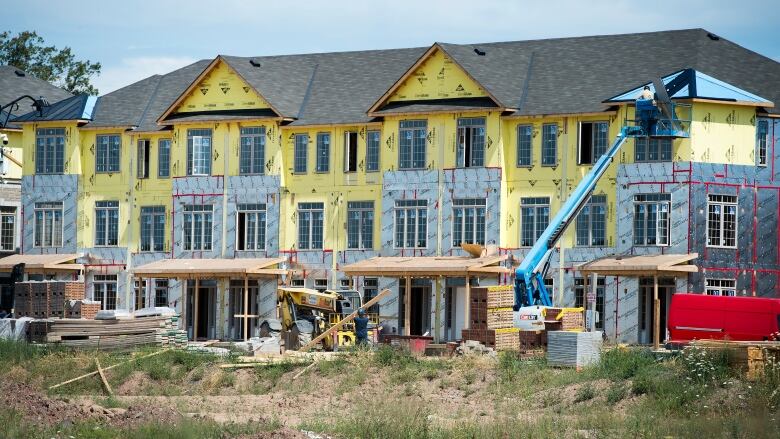
"Ontario is making it easier to buy a home," declares the headline on the news release from Premier Doug Ford's government about its new housing plan, unveiled this week.
Anyone who reads through the plan would be justified in wondering how its tweaks to city planning timelines and proposed changes to the building codewill actually make it any easier to buy in a real estate market that is basically bonkers.
The unaffordability of housing in Ontario right now is one of the most pressing issues facing the province. The average home price has skyrocketed 44 per cent in two years. Costs are now so high that it threatensto freeze the bulk of an entire generation out of home ownership.
There's broad agreement across the political spectrum that an essential ingredient in trying to dampen prices is to boost the supply of housing, and boost it in a dramatic way.The Ford government's hand-picked advisors recently drew up a blueprint on how to do just that.
The Housing Affordability Task Force recommendeddoubling the pace of new home construction, setting a target of 1.5 million homes built in Ontario over the coming decade and increasing density in neighbourhoods of single-family homes.
None of that is in the "More Homes For Everyone" plan the Ford government released Wednesday.
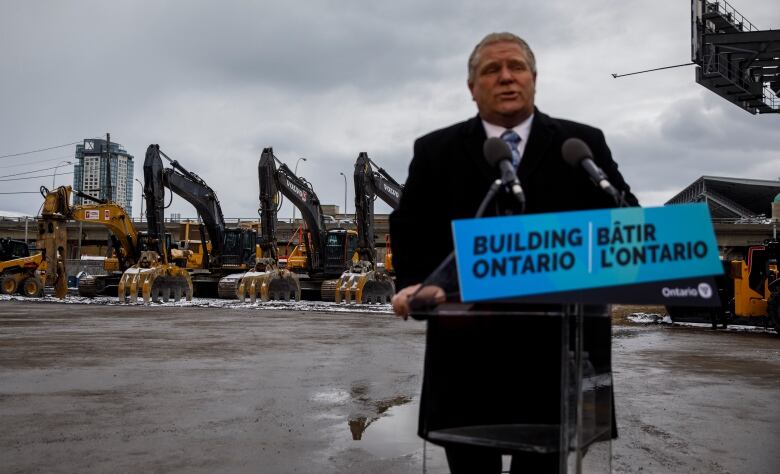
"I value the task force report. I think they put some very bold ideas forward," Municipal Affairs and Housing Minister Steve Clark told a news conference Wednesday.
"Perhaps the recommendations were a bit too bold for some communities," Clark added.
Bold action is what's needed in a crisis, and just about everyone describeswhat's happening with housing affordability as a crisis.
"We are in a housing crisis and that demands immediate and sweeping reforms," states task force chair Jake Lawrence in the report. "There is no time to waste."
Yet the government's plan is full of further consultations and references to the long-term, with the few immediate changes such as the increase to the non-resident homebuyers tax unlikely to significantly rein in home prices.

The plan focuses on speeding upmunicipal approvals of housing projects. The province is giving city halls across the province deadlines for deciding on planning applications and rezoning requests. Delays will mean cities get financially penalized by having to refund the fees developers paid to apply.
It's hard to find anybody calling that bold.
Even the voice of developers, the Building Industry and Land Development Association (BILD), normally one of the Ford government's biggest fans, tepidly described the moves as "positive, but there is much more that can be done."
One of the most trenchant criticismsof the plan comes from the group More Neighbours Toronto. The group describes itself as a "network of pro-housing voices from across the political spectrum." It's made up of people, mostly in their 20s and 30s, who are pushing for more housing as a means of making home ownership more affordable.
More Neighbours was as profoundly excited by the task force's recommendations as they are deeply disappointed by the government's plan.
Faster approvals by city hall will have a "negligible impact" on affordability, More Neighbours said in a statement.
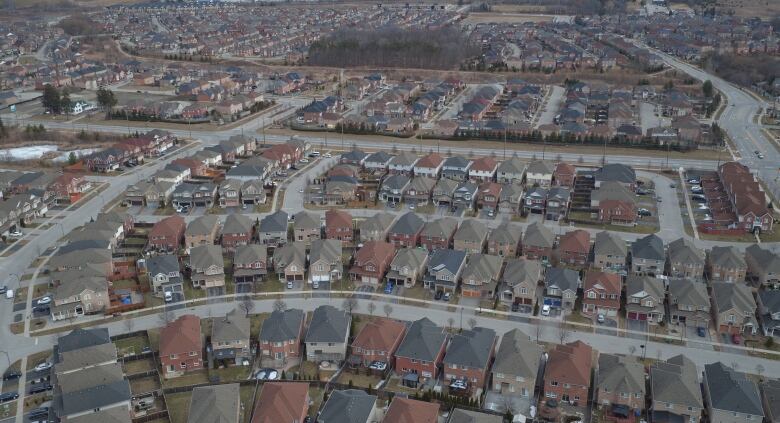
The group says municipal planning delays are simply not the big problem here. Rather, it's that 70 per cent of land in most Ontario cities is "locked away" by zoning that only permits single-family houses.
The government's plan "does little to make it possible to actually build enough homes where housing is most needed, in existing communities," said Rocky Petkov, a More Neighbours Toronto member, in a statement.
Municipalities 'not ready'
Asked how many additional new homes will get built as a result of his plan, Clark declined to answer, saying,"Let's focus on the policies first and let's review the numbers in the years to come."
So why is the government going after the small potatoes of municipal planning delays and not tackling the big thing of housing density?
Clark says it's because of resistance from city councils.
"Municipalitieshave told us that they're not ready to implement the ambitious policies from the task force's report right away," he said Wednesday. "If we're going to deal with the housing crisis in Ontario, we have to have municipalities in our corner."
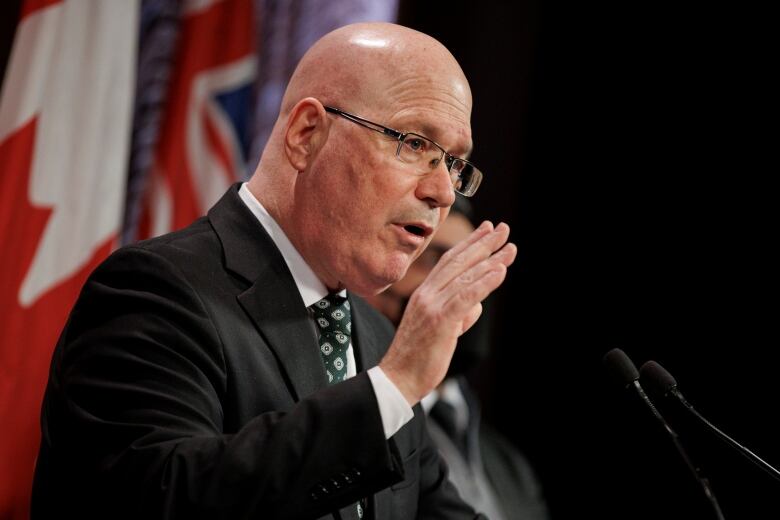
Seeing Ford and Clark backdownin the face of this resistance will no doubt provoke memories of their previous hard line on telling municipalities how things are going to be. Just askToronto city council,or at least the half of it that's left.
My sources close to the government say the ambitious policy causing them the biggest grief is the proposal for the province to impose greater density in single-family neighbourhoods.
Suburban pushback, election coming
The pushback on this came from the leafier suburbs of the Greater Toronto Area, notably Oakville and Burlington. There were also complaints from mayors and councils around Ontario about the idea that the province would be telling cities what to do about zoning.
Ford and his government have heapeda lot of blame on municipalities for the housing supply crunch. Some of that has centred on city councillors being too beholden to NIMBY residents opposing developments.
Yet here is the government reluctant to put in place the best method it has to increase the supply of housing for fear of backlash from suburban homeowners who don'twant density in their single-family neighbourhoods.
Political reality is that homeowners in the 905 are a demographic that Ford and the PCs don't want to offend right before the June 2 election.
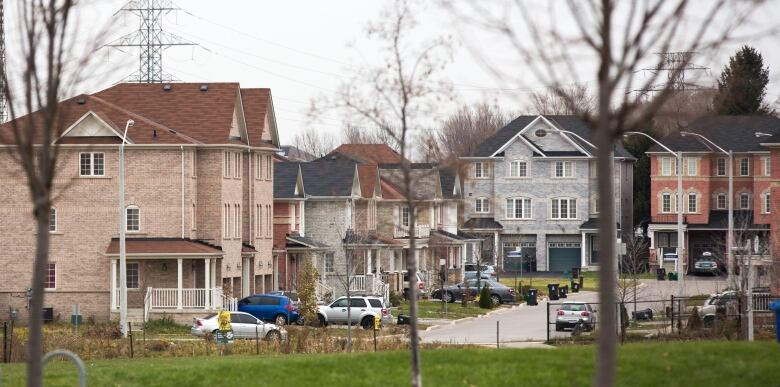
So the government will now kick the density can down the road. The province established a housing supply "working group" with the municipalities on all this stuff, and that work won't beginuntil this summer after the June 2 election.
Ford's first public appearance to promote the plan was at an event sponsored by the Ontario Real Estate Association. Setting aside the optics of his choice of venue, Ford tried to get across a message that his government is taking decisive action on housing.
"We're going to cut the red tape and all the regulations to get housing starts moving even faster," Ford told the livestream.
"Previous governments didn't get the housing starts that we needed," he added. "They didn't have the fortitude, they didn't have the backbone to go out there and get it done."
Ford's precise words are worth noting. You'll hear "get it done" a lot from him in the next nine weeks: it's the PC campaign slogan.
As for "fortitude" and "backbone,"some are wondering whether Ford has lost his when it comes to the housing crisis.












_(720p).jpg)


 OFFICIAL HD MUSIC VIDEO.jpg)
.jpg)



























































































